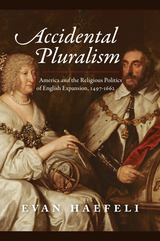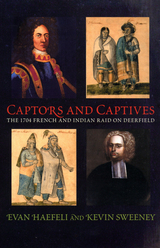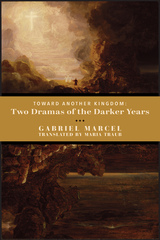4 books about Haefeli, Evan

Accidental Pluralism
America and the Religious Politics of English Expansion, 1497-1662
Evan Haefeli
University of Chicago Press, 2021
The United States has long been defined by its religious diversity and recurrent public debates over the religious and political values that define it. In Accidental Pluralism, Evan Haefeli argues that America did not begin as a religiously diverse and tolerant society. It became so only because England’s religious unity collapsed just as America was being colonized. By tying the emergence of American religious toleration to global events, Haefeli creates a true transnationalist history that links developing American realities to political and social conflicts and resolutions in Europe, showing how the relationships among states, churches, and publics were contested from the beginning of the colonial era and produced a society that no one had anticipated. Accidental Pluralism is an ambitious and comprehensive new account of the origins of American religious life that compels us to refine our narratives about what came to be seen as American values and their distinct relationship to religion and politics.
[more]

Captive Histories
English, French, and Native Narratives of the 1704 Deerfield Raid
Evan Haefeli
University of Massachusetts Press, 2006
This volume draws together an unusually rich body of original sources that tell the story of the 1704 French and Indian attack on Deerfield, Massachusetts, from different vantage points. Texts range from one of the most famous early American captivity narratives, John Williams's The Redeemed Captive, to the records of French soldiers and clerics, to little-known Abenaki and Mohawk stories of the raid that emerged out of their communities' oral traditions. Evan Haefeli and Kevin Sweeney provide a general introduction, extensive annotations, and headnotes to each text.
Although the oft-reprinted Redeemed Captive stands at the core of this collection, it is juxtaposed to less familiar accounts of captivity composed by other Deerfield residents: Quentin Stockwell, Daniel Belding, Joseph Petty, Joseph Kellogg, and the teenaged Stephen Williams. Presented in their original form, before clerical editors revised and embellished their content to highlight religious themes, these stories challenge long-standing assumptions about classic Puritan captivity narratives.
The inclusion of three Abenaki and Mohawk narratives of the Deerfield raid is equally noteworthy, offering a rare opportunity not only to compare captors' and captives' accounts of the same experiences, but to do so with reference to different Native oral traditions. Similarly, the memoirs of French military officers and an excerpt from the Jesuit Relations illuminate the motivations behind the attack and offer fresh insights into the complexities of French-Indian alliances.
Taken together, the stories collected in this volume, framed by the editors' introduction and the assessments of two Native scholars, Taiaiake Alfred and Marge Bruchac, allow readers to reconstruct the history of the Deerfield raid from multiple points of view and, in so doing, to explore the interplay of culture and memory that shapes our understanding of the past.
Although the oft-reprinted Redeemed Captive stands at the core of this collection, it is juxtaposed to less familiar accounts of captivity composed by other Deerfield residents: Quentin Stockwell, Daniel Belding, Joseph Petty, Joseph Kellogg, and the teenaged Stephen Williams. Presented in their original form, before clerical editors revised and embellished their content to highlight religious themes, these stories challenge long-standing assumptions about classic Puritan captivity narratives.
The inclusion of three Abenaki and Mohawk narratives of the Deerfield raid is equally noteworthy, offering a rare opportunity not only to compare captors' and captives' accounts of the same experiences, but to do so with reference to different Native oral traditions. Similarly, the memoirs of French military officers and an excerpt from the Jesuit Relations illuminate the motivations behind the attack and offer fresh insights into the complexities of French-Indian alliances.
Taken together, the stories collected in this volume, framed by the editors' introduction and the assessments of two Native scholars, Taiaiake Alfred and Marge Bruchac, allow readers to reconstruct the history of the Deerfield raid from multiple points of view and, in so doing, to explore the interplay of culture and memory that shapes our understanding of the past.
[more]

Captors and Captives
The 1704 French and Indian Raid on Deerfield
Evan Haefeli
University of Massachusetts Press, 2003
On February 29, 1704, a party of French and Indian raiders descended on the Massachusetts village of Deerfield, killing fifty residents and capturing more than a hundred others. In this masterful work of history, Evan Haefeli and Kevin Sweeney reexamine the Deerfield attack and place it within a framework stretching from the Atlantic Ocean to the Great Lakes. Drawing on previously untapped sources, they show how the assault grew out of the aspirations of New England family farmers, the ambitions of Canadian colonists, the calculations of French officials, the fears of Abenaki warriors, and the grief of Mohawk women as they all struggled to survive the ongoing confrontation of empires and cultures.
Haefeli and Sweeney reconstruct events from multiple points of view, through the stories of a variety of individuals involved. These stories begin in the Native, French, and English communities of the colonial Northeast, then converge in the February 29 raid, as a force of more than two hundred Frenchmen, Abenakis, Hurons, Kahnawake Mohawks, Pennacooks, and Iroquois of the Mountain overran the northwesternmost village of the New England frontier. Although the inhabitants put up more of a fight than earlier accounts of the so-called Deerfield Massacre have suggested, the attackers took 112 men, women, and children captive. The book follows the raiders and their prisoners on the harsh three-hundred-mile trek back to Canada and into French and Native communities. Along the way the authors examine how captives and captors negotiated cultural boundaries and responded to the claims of competing faiths and empires—all against a backdrop of continuing warfare.
By giving equal weight to all participants, Haefeli and Sweeney range across the fields of social, political, literary, religious, and military history, and reveal connections between cultures and histories usually seen as separate.
Haefeli and Sweeney reconstruct events from multiple points of view, through the stories of a variety of individuals involved. These stories begin in the Native, French, and English communities of the colonial Northeast, then converge in the February 29 raid, as a force of more than two hundred Frenchmen, Abenakis, Hurons, Kahnawake Mohawks, Pennacooks, and Iroquois of the Mountain overran the northwesternmost village of the New England frontier. Although the inhabitants put up more of a fight than earlier accounts of the so-called Deerfield Massacre have suggested, the attackers took 112 men, women, and children captive. The book follows the raiders and their prisoners on the harsh three-hundred-mile trek back to Canada and into French and Native communities. Along the way the authors examine how captives and captors negotiated cultural boundaries and responded to the claims of competing faiths and empires—all against a backdrop of continuing warfare.
By giving equal weight to all participants, Haefeli and Sweeney range across the fields of social, political, literary, religious, and military history, and reveal connections between cultures and histories usually seen as separate.
[more]

The Worlds of William Penn
Murphy, Andrew R
Rutgers University Press, 2019
William Penn was an instrumental and controversial figure in the early modern transatlantic world, known both as a leader in the movement for religious toleration in England and as a founder of two American colonies, Pennsylvania and New Jersey. As such, his career was marked by controversy and contention in both England and America. This volume looks at William Penn with fresh eyes, bringing together scholars from a range of disciplines to assess his multifaceted life and career. Contributors analyze the worlds that shaped Penn and the worlds that he shaped: Irish, English, American, Quaker, and imperial. The eighteen chapters in The Worlds of William Penn shed critical new light on Penn’s life and legacy, examining his early and often-overlooked time in Ireland; the literary, political, and theological legacies of his public career during the Restoration and after the 1688 Revolution; his role as proprietor of Pennsylvania; his religious leadership in the Quaker movement, and as a loyal lieutenant to George Fox, and his important role in the broader British imperial project. Coinciding with the 300th anniversary of Penn’s death the time is right for this examination of Penn’s importance both in his own time and to the ongoing campaign for political and religious liberty
[more]
READERS
Browse our collection.
PUBLISHERS
See BiblioVault's publisher services.
STUDENT SERVICES
Files for college accessibility offices.
UChicago Accessibility Resources
home | accessibility | search | about | contact us
BiblioVault ® 2001 - 2025
The University of Chicago Press









